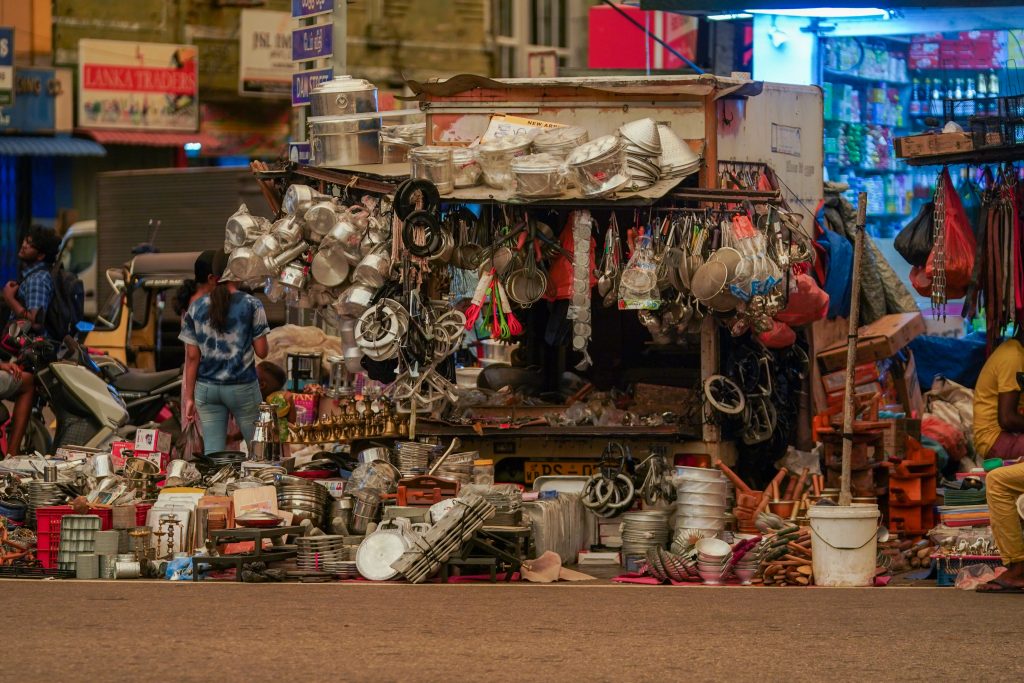In 2023, Sri Lanka faced a complex interplay of economic and political challenges. Although fuel and food queues have disappeared, the dire impact of the economic crisis was inescapable.
Sri Lanka’s economic outlook was initially grim, with a 3.1 per cent GDP contraction in the second quarter of 2023 and a projected 2 per cent shrinkage for the year. The first quarter saw an alarming 11.5 per cent contraction, highlighting the severity of the crisis. Despite a peak inflation rate of 70 per cent in September, it dropped to 3.4 per cent in November due to subdued demand, offering temporary relief for poorer households
The World Bank later revised its forecasts, noting Sri Lanka’s progress in reducing inflation and benefits accruing from tourism revenue and currency appreciation. The Bank now expects a 1.7 per cent economic expansion in 2024, up from its earlier 1 per cent forecast. In the last six months of 2023, Sri Lanka experienced reduced inflation, a 12 per cent currency appreciation, improved foreign reserves and increased remittances.
The expansion of agricultural activities also improved in the second quarter of the year — a much-needed development after the Rajapaksa regime’s disastrous organic fertiliser policy which badly affected the sector. Despite optimism, the overall economic outlook remains uncertain with significant downside risks.
The fiscal path is a critical focus, with the World Bank underscoring the importance of revenue mobilisation to achieve a sustainable trajectory. The International Monetary Fund’s (IMF) involvement and policy responses signalled a commitment to stabilising the economy, but with tremendous pains for the populace. Already unpopular President Ranil Wickremesinghe had to bite the bullet by implementing harsh policy measures.
In October, Colombo announced another rise to the already increased value added tax in the previous year, bringing it up to 18 per cent from 1 January. According to Prime Minister Dinesh Gunawardena, raising taxes is imperative to unblock the next instalment of the IMF’s loan. Energy Minister Kanchana Wijesekera also announced a rise in electricity tariffs. The parliament’s anti-corruption bill — a requirement tied to the US$2.9 billion IMF bailout plan — was the only unanimous measure.
The IMF’s rescue package hinged on the outcome of international debt restructuring agreements involving Sri Lanka, China and other lenders. The deal with China, though shrouded in mystery, marked a crucial point for continued IMF assistance to Sri Lanka. Recent Chinese economic activities in Colombo, such as Sinopec securing a licence for a US$4.5 billion refinery and operating rights for 150 petrol stations, have been interpreted as potential negotiation outcomes.
President Wickremesinghe also began to actively seek external partnerships to bolster the economy. Sri Lanka’s application to join the Regional Comprehensive Economic Partnership, the world’s largest trading bloc, was one important step in the right direction. Sri Lanka also aimed to tap into new trade and supply chain opportunities by reviving trade talks with Thailand, India and China.
In November, Sri Lanka welcomed a US$553 million project announced by the United States and India’s Adani Group to build a deep-water shipping container terminal in Colombo Port. The project is one of the United States’s strategic counterbalancing acts to contain China’s growing influence in the region. The project hopes to build critical infrastructure to transform Colombo into a world-class logistics hub, with the US International Development Finance Corporation assuring that the loan is ‘sovereign debt-free.’
2023 also saw a series of key political developments. Initial improvements in political rights and civil liberties compared to 2022 were later countered by continued political, economic and human rights crises under Wickremesinghe. There was a sharp decline in civic space just one year after mass protests, with the new government not hesitating to use force to intimidate or disperse gatherings of people, tear-gassing student protesters, assaulting reporters and breaking up memorial vigils in the north and east.
Former president Gotabaya Rajapaksa also made public statements reminding of his presence, which added anxiety to Colombo’s political scene. Rajapaksa denied allegations made by the UK’s Channel 4 of grave human rights violations by Sri Lankan soldiers in the final phase of the civil war and that he conspired to carry out the ISIL-inspired Easter bombings in 2019 to help him win the presidential election that year.
Although the government was quick to put out the fire by promising a parliamentary committee to investigate the allegations, Sri Lanka’s Supreme Court held the Rajapaksa brothers accountable for triggering the island’s worst financial crisis. The Court’s ruling can be interpreted as a warning to the electorate to make an informed choice in the 2024 presidential elections.
Shyamika Jayasundara-Smits is Assistant Professor in conflict and peace studies at the International Institute of Social Studies (ISS), Erasmus University Rotterdam.
This article is part of an EAF special feature series on 2023 in review and the year ahead.

